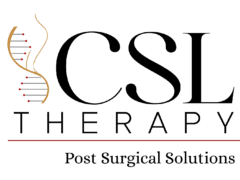Regulation Number: CSL-PB-006. Professional Boundaries.
006.1. Dual Relationships:
- Certificants and licensees shall avoid dual relationships that could compromise the objectivity or integrity of the therapeutic relationship. This includes refraining from engaging in personal, financial, or intimate relationships with clients.
006.2. Personal Disclosure:
- Certificants and licensees shall exercise discretion when sharing personal information with clients, disclosing only what is necessary for the therapeutic relationship and avoiding self-disclosure that may distract from the client’s needs.
006.3. Avoiding Exploitation:
- Certificants and licensees shall not exploit clients in any manner, including financially, emotionally, or sexually. They shall maintain clear boundaries to prevent such exploitation.
006.4. Gift and Gratuity Policy:
- Certificants and licensees shall have a clear policy regarding gifts or gratuities from clients, ensuring that any accepted gifts are nominal, do not create a sense of indebtedness, and are within ethical guidelines.
006.5. Physical Boundaries:
- Certificants and licensees shall establish and maintain appropriate physical boundaries during treatment sessions, ensuring client comfort and safety.
006.6. Social Media and Online Presence:
- Certificants and licensees shall maintain professional boundaries on social media and online platforms, refraining from engaging in personal or inappropriate interactions with clients through digital channels. Therapists shall only share content of clients whom signed a media release form.
006.7. Confidentiality:
- Certificants and licensees shall uphold client confidentiality and shall not share client information or discuss cases outside of professional settings unless required by law or with the client’s informed consent.
006.8. Conflict of Interest:
- Certificants and licensees shall avoid conflicts of interest that could compromise their ability to act in the best interests of the client. These conflicts of interest should also be avoided from teaching courses for the wrong reasons. Therapists should be tenured, with at least 6 months of experience AFTER successfully completing an accredited CSL Therapy Foundational course before teaching one of the 3 CSL Therapy regulated modalities; educational instructors should also be in compliance of the CSL Therapy Advanced Scholastic Trainers (AST) Program.
006.9. Respect for Autonomy:
- Certificants and licensees shall respect the autonomy and decision-making capacity of clients, refraining from exerting undue influence or coercion.
006.10. Supervision and Consultation:
- Certificants and licensees shall seek supervision and consultation when facing challenging ethical dilemmas, ensuring that they receive guidance to maintain professional boundaries.
006.11. Maintaining Objectivity:
- Certificants and licensees shall maintain objectivity in their interactions with clients, avoiding biases or favoritism.
006.12. Documented Consent:
- Certificants and licensees shall obtain documented informed consent for any non-standard or unconventional treatments or procedures, ensuring that clients are fully aware of the nature of the intervention.
006.13. Reporting Violations:
- Certificants and licensees shall promptly report any violations or breaches of professional boundaries by themselves or others to CSL Therapy for appropriate investigation and action.
Failure to comply with this Patient Privacy/Confidentiality & Public safety regulation may result in disciplinary actions by CSL Therapy, including but not limited to certification or licensure suspension or revocation, dismissal fines, and incarceration in accordance with CSL Therapy’s disciplinary policies and procedures.
This regulation shall be effective as of [September 18, 2023] and shall remain in effect until revised or updated by CSL Therapy.



